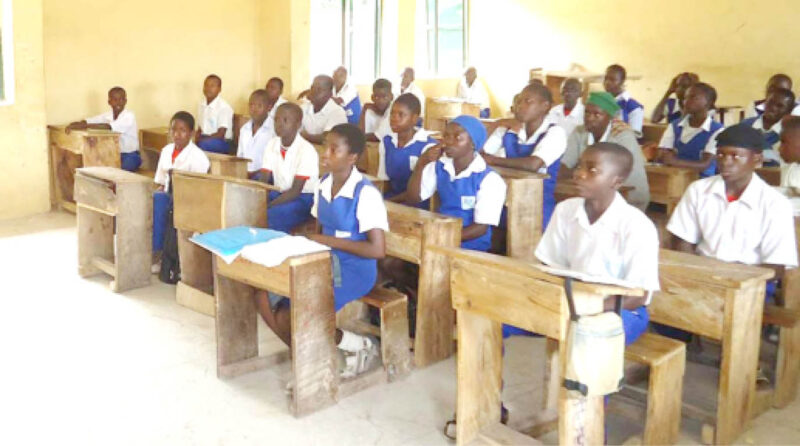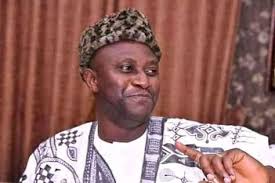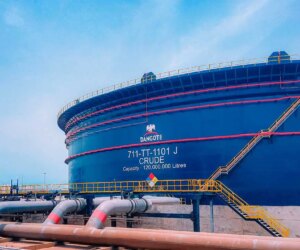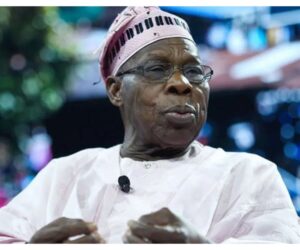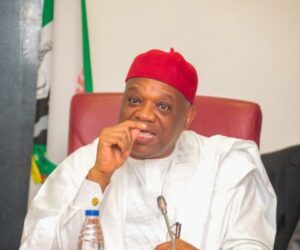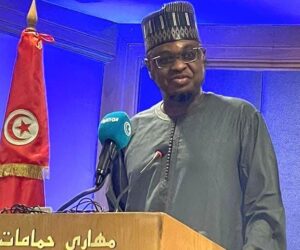As many public and private schools across Nigeria resume the 2025/2026 academic session today, parents are expressing deep concerns over skyrocketing fees, textbooks, bus fees and other charges imposed by proprietors.
This is coming at a time of the rising cost of living crisis across the country whereby inflation has eaten deep into citizens’ income.
Some parents who enrolled their children in private schools said the burden of increment in charges was getting out of hand; while some poor parents said they left their children at the mercy of poor facilities in public schools.
SPONSOR AD
Many of the parents, who spoke to Daily Trust, alleged that private schools have turned education into a business venture, leaving families struggling to cope. Those whose children are in public schools decried hidden charges by headmasters and teachers amid poor learning environment.
Our correspondents report that many public primary and secondary schools in some states are suffering from poor infrastructure with frustrated teachers being in charge.
In most of such public schools, only children of the poor are enrolled, as most of the elite working at the local, state and national levels prefer to take their children to private schools in urban and semi-urban communities.
In the midst of these challenges, middle income earners in both private and government sectors strive to enroll their children in private schools where they believe they will get desired results.
Some parents in this category said to meet up with “exorbitant” fees and charges imposed by proprietors in private schools, they resorted to borrowing.
But proprietors defended the increase in school fees and other charges, citing “huge” taxes imposed on them by government. They also alleged extortion by supervisors posted by local authorities.
This is even as education experts called on government to revive public schools to address the menace in the sector.
Just last week, the Kaduna and Plateau State governments introduced measures to stop private school proprietors from exploiting parents.
In a public notice dated September 2, 2025, the Director-General of the Kaduna State Schools Quality Assurance Authority, Professor Usman Abubakar Zaria, cautioned proprietors against arbitrary hikes, saying any increment requires Parents-Teachers Association’s agreement with a quorum, a formal application, enrolment data and minutes of PTA meetings.
He also directed publishers to stop producing textbooks with built-in worksheets that cannot be reused, effective September 1, 2026. “This practice imposes unnecessary financial hardship on parents and leads to avoidable waste. All publishers are hereby directed to provide separate optional workbooks, while the main textbooks shall remain reusable,” he said.
The Plateau State House of Assembly on Thursday resolved to halt the compulsory yearly purchase of textbooks imposed on parents by schools across the state, insisting that books be re-circulated among pupils, including siblings, as part of measures to reduce the financial burden on families.
The House said parents should have the freedom to reuse textbooks or buy them from sources outside the schools. The lawmakers recommended a four-year textbook cycle where approved materials remain in use for at least four academic sessions.

‘It’s about the future of our children’
Malam Abdullahi, who works with a private company, said the whole of his August salary was dedicated to the payment of the school fees of one of his children in Bauchi.
“I want the best for my children and therefore, I don’t want to take them to public schools. This is why I have to find a way to pay the school fees in private schools.
“For instance, I paid N100,000 as school fees for one of my children; I paid N120,000 for the school bus, while other things like uniforms and school bags guzzled around N100,000. This gives a total of around N330,000.
“And I have four children to cater for…Of course, I have some savings during the holidays but it is not enough to take care of the remaining children. I am going to approach my bank within the week,” he said.
He said it was dangerous to entrust his children in public schools.
“It is painful that those in position of authority have allowed the public schools to collapse and it is at your own peril if you take your children there,” he said.
Kaduna
Mrs. Halima Mu’azu, a resident of Hayin Malam Bello in Kaduna, said she enrolled her children in a modest private school because the best are beyond her status. The school is the cheapest in our neighbourhood but it is better than the public schools around.
“This term, my children’s school has increased the fees significantly. My eldest daughter is moving from JSS 1 to JSS 2, and the fees have gone up from N27,000 to almost N32,000. This increase came at a time when the cost of living is already very high. For less privileged parents, this often leads to borrowing or cutting back on family needs. It is really a heavy burden.”
Badamasi Isah and Hajiya Halima Sani, from Kaduna, criticized the system that forces students to write directly in textbooks, thereby preventing reuse.
A parent in Rigasa, Salisu Garba, said: “Truly, we are not happy enrolling our children in government schools because teaching is not effective. A child can finish primary school and even move to secondary school without being able to write his own name, and yet the teachers keep promoting them. But since we don’t have money, we are left with no choice but to send them to such schools.”
A community leader and traditional title holder of the blind in Sabon Garin Tudun Wada, Kaduna, Malam Bello Abubakar Talatar Mafara, said: “We are in trouble because private schools are not for people like us. We don’t have money, and the little support we get in the community is not enough.
“That is why we are forced to send our children to government schools, since we have no other option. Even though the teaching there is not up to standard, we will continue to send our children there because we cannot afford private schools due to the high cost.
“Most of us do not have any occupation other than begging, and we really want our children to be educated, but we cannot put them in private schools.
“That is why we are appealing to the government to improve public schools, so that the quality of teaching can be better, and the children of the poor can also acquire education.”
Plateau
Ibrahim Isa, a resident of Anguwan Rogo community in Jos, said, “Private schools, especially quality ones, are very expensive and unaffordable for us. We have other pressing responsibilities that take priority over paying huge amounts for school fees. We have to feed the children, pay rent and also take care of their health and therefore, some of us have no option but to leave them in public schools.”
Musa Audu, another resident of Jos, pointed out that private schools vary in quality and affordability.
“I wish I can send my children to a top-tier private school but the current economic situation makes it impossible.”
Pam Bulus, a parent in Jos, said, “It is not easy for parents to get the money needed to buy school materials and other essential items especially in private schools. As a civil servant, if you collect your salary and have three children, you have to buy books, uniforms, and other items. You also have to pay for the school fees. With these responsibilities, it would not be easy for us.”
Yakubu Wakili, another parent, said: “It is not easy at all. Whether as a businessman or civil servant, you don’t find it easy. If you are a worker, how much is your salary? How much will you spend on school materials and pay school fees?”

Benue
In Benue State, a parent, Attah Ede, said “Many schools have increased their school fees by 50 to 100 per cent. Like in my children’s school, last session, we paid between N55, 000 and N60, 000 for both school fees and books, but this year’s session, we were asked to pay between N87, 000 to N120, 000 depending on the class your child is going to.”
For Mrs. Angela Tyongun, a mother of three, it had not been easy with the financial burden that comes with back-to-school preparations. Tyongun noted that in the past week, she had been to the market three times just for school items and yet was not done buying.
Mrs. Felicia Prosper and Mr. Julius Abu, from Edo State, also decried hike in school fees.
Lagos
The situation is not different in Lagos State where some parents said they have refused to buy new uniforms demanded by schools.
One of them, Mrs. Funke Adeyemi, said: “There is no need to buy new uniforms. The ones they used last session are still good.”
Another parent who gave his name as Ismail said the poor state of public schools was responsible for the desperation of parents to find alternatives for their children.
“I spend over N1, 200,000 on my three children every term and the estimate has now jumped to nearly N2,000,000. It is very unfortunate.
“Governments, especially at the state level must do something. They must revive the excellent status of public schools. They should also enrol their children in those schools to lead the way.
“This is necessary to stop corruption in the country. Many parents go the extra mile and compromise the trust vested in them in order to get money to fund the education of their children,” he said.
Kano
Parents in Kano State who spoke to Daily Trust said though most of the schools have not increased fees, what they are being paid for textbooks and school bus is too high.
One of the parents, Malam Habu Adam, said, “The school had released a list of textbooks for my child, and the books cost N62,000.
Another parent, Abdulhamid Yusuf, said he paid for school bus, uniforms and books.
“Cumulatively, I spent around N500,000 for two of my children and I had to borrow part of the money from my bank. They would deduct it from my salary within certain period,” he said.
In Katsina State, parents said despite the fact that private and community schools had not resolved the termination of their licences by the state government, many of them had notified parents about fee increment.
The state government had, in August, announced the revocation of the licences for all private and community schools operating across the state. This was contained in a circular issued by the state Commissioner for Basic and Secondary Education, Zainab Musa-Musawa.
“On June 2, 2025, the ministry conducted sensitisation for key stakeholders regarding the new state policy for private and community schools.
“This policy aligns with the state’s educational reform agenda, aimed at ensuring quality assurance, standardisation, and effective regulation of teaching and learning across Katsina.
“The public is hereby informed that the state government has revised the licence application, registration, annual renewal, and school upgrade fees,” the commissioner said.
“All affected schools should submit payment receipts for application and registration fees for new licences to the ministry via the Department of Private and Community Schools, based on school categorisation.
“And also, all payments must be made exclusively to the Katsina state’s single treasury account, on or before September 30, 2025,” the commissioner had said.
Abuja
Our correspondents in Abuja, the Federal Capital Territory (FCT), quoted some parents as saying the situation was becoming like a racket.
One of them, who does not want his name mentioned, said even though school fees during the first term tend to be higher, some proprietors are not considerate at all.
According to him, “I paid N550,000 for one of my children last term but this time around, they asked me to pay N725,000.”
He also condemned the claim by some proprietors that they hiked their school fees and other charges because of increased taxes by authorities.
“The so-called addition in taxes by the government has not taken effect. I believe that proprietors are just taking advantage of the weak system to exploit parents,” he said.
Another parent said he paid N2.6 million for his child in one of the boarding secondary schools in Abuja.
“There are other schools that collect as much as N6 million for a term,” he said.
Michael John, who lives in Kubwa, said he was contemplating taking his children back to his village in Kogi State because his salary is too small to sustain the life style in the FCT.
“It doesn’t make sense for me to be paying over N400, 000 as school fees per term for each of my children. I am on grade level 14 in the civil service and even though I receive support from my younger brother who lives in Canada, it is not sustainable. For how long will he continue to support me?
“I have completed plans to take my children back to Okene but my wife is not amenable to taking the children back home. She is concerned about closely monitoring them here but what can I do? Should I still in order to fund the education of my children?” he asked.
How parents can resist exploitation – PTA
The National Chairman of the Parents Teachers Association (PTA), Danjuma Muhammad, said parents need to unite to resist exploitation by schools.
“Private schools now operate like businesses. Some are not even registered, yet they charge higher fees than well-established schools. Some don’t even have licenses but still demand outrageous fees. If the government reduces the tax burden on them, things would be easier.
“Parents have power if they unite. Private schools act like businesses, but if PTAs are strong, they can resist exploitation. Schools may set fees as they wish, but if parents refuse through PTA action, the government will be forced to intervene.”
Proprietors blame heavy taxes
Abdulganiyu Abdurrahman Giwa, proprietor of Igra Model Standard School, Tudun Wada, Kaduna, said they were not solely to blame as “government imposes huge taxes on schools.
According to him, “When taxes rise, schools pass the burden to parents,” he said.
Another private school proprietor, Ustaz Hussein Onitira, urged the government to revisit the issue of tax, which, according to him, is forcing some private schools to shut down.
On the rising cost of stationery, Hussein said although the school used to print its exercise books, the cost of printing had gone up alongside that of textbooks, which are passed on to parents. “Just from the last holiday to now, the cost has increased, but the school fees have remained the same,” he added.
Hussein also called for price control measures to check arbitrary increases in the cost of education and stationery. “While public schools can afford to give free books to students, we do not have that opportunity. We have to pass the cost to parents, which may discourage them if prices remain on the high side,” he said.
Experts seek revival of public schools
Dr Adekola Lasisi, an educationist at Al-Hikmah University, Ilọrin, in an interview with Daily Trust, asked government to revamp public schools.
“Given the current economic situation, many parents are finding it difficult to keep their children in private secondary schools and rely on the government to provide quality education. This is not even negotiable,” he said.
From Mohammed Ibrahim Yaba (Kaduna), Ado Abubakar Musa (Jos), Hope Abah (Makurdi), Mumini Abdulkareem (Ilorin), Ibrahim Musa Giginyu (Kano), Ali Rabi’u Ali (Dutse), Eyo Charles (Calabar), Usman A. Bello (Benin) & Gbenga Adebayo (Lagos)

